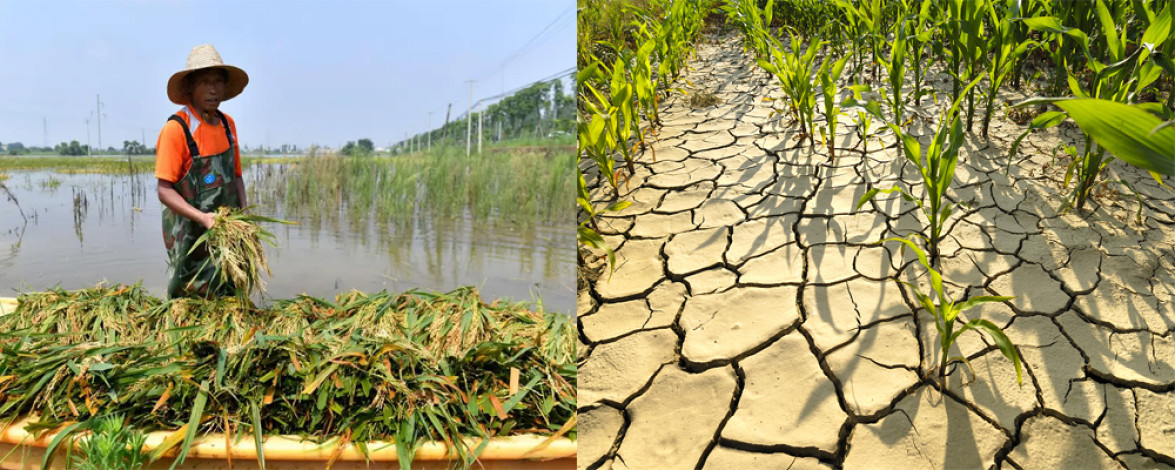
File Photo
Extreme rainfall made more intense and more frequent by climate change poses a major risk to China’s food security, according to a new study that forecasts an 8 percent fall in rice yields by the end of the century.
China is the world’s largest rice grower, producing around 214 million tonnes a year. It is a staple foodstuff for the majority of the country’s 1.4 billion people.
Studies have warned that increasingly severe droughts – driven by climate change – will cause a decline in yields over the coming decades, but little research has been done on the potential impact of extreme rainfall on the crop.
Jin Fu at Peking University, China, and her colleagues used data from nationwide observations and field experiments to model the impact of extreme rainfall on current and future rice yields across the country.
They found that extreme rainfall has already reduced rice yields by 8 percent compared with a world without human-made warming, a reduction comparable in magnitude to the impact of extreme heat.
In the coming decades, yields are expected to fall a further 8 percent under climate scenarios in which average temperatures rise by 2 to 3°C by the end of the century.
“Extreme rainfall is normally an overlooked disaster for food security,” says Fu. But she says it “could really cause a big disaster” for food production in China and beyond.
Heavy rain affects rice crops in two main ways. Firstly, excess water in paddy fields dilutes nitrogen levels in soils, leading to slower growth and lower yields. Meanwhile, torrential rain can damage delicate flowers, disrupting the plant’s grain production.
Fu says the study’s findings are conservative assessments because the modeling didn’t account for the additional impacts on yields of stronger winds, lower levels of sunshine and colder temperatures that can accompany rainy weather.
The findings suggest other countries in South-East Asia that also grow a lot of rice could see even larger declines in yield because climate models suggest they will suffer even more intense rainfall than China.
Fu says research is now needed to establish whether farmers can mitigate some of the negative impacts of extreme rainfall, by shifting the location of paddy fields to part of China less likely to be affected, co-planting rice with upland crops that could do well when rice fails, such as maize, or applying more nitrogen fertilizer to fields to compensate for the additional rainfall.
Allison Thomson at the Foundation for Food & Agriculture Research, a non-profit organization based in the US, says: “I think this type of research is important not just to quantify the impact on food security, but also to help us better understand what adaptations are needed – so knowing what the impacts might be, how can farmers better prepare to minimize the impact of these extreme rainfall events in the future?”
Source:
Online/GFMM
Comment Now